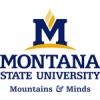General Statement
Montana State University seeks qualified individuals to provide non-tenurable level instruction and / or related functions.
Instructors are needed to teach classes depending upon need and available funding.
Applications are accepted on a continual basis (unless otherwise indicated) and will be maintained in pool for two years.
After two years, candidates will be notified to re-submit materials for continued consideration.*
The department or program search committees or hiring authority will review and evaluate the submitted application materials.
Applicants will be notified if their application is being retained in the non-tenure track faculty hiring pool.
Appointments are on a part-time basis and vary in duration, a couple weeks, a semester or an academic year, depending on the specific needs of the department / program.
Salary is dependent on number of courses taught and duration.
We seek individuals who work professionally and effectively with diverse individuals, possess effective interpersonal, written and verbal communication skills and have the ability to contribute positively to the academic success of the students and the mission of Montana State University.
Duties and Responsibilities We hope to attract applicants who can teach in a diverse University community and have demonstrated ability in helping students from diverse backgrounds succeed.
- Teaching on-campus or online courses.
- Advising, evaluating and assisting students.
- Curriculum and / or course development.
- Participating in weekly faculty meetings.
- Meeting regularly with, collaborating with, and evaluating peer leader, if one is assigned to your section.
Required Qualifications Experience, Education, Knowledge & Skills
- Master’s Degree in a relevant field with academic background commensurate with teaching one or more of the specialty areas listed above.
- Demonstrated experience working with and engaging diverse students and colleagues within and outside the department.
Preferred Qualifications Experience, Education, Knowledge & Skills
- Demonstrated experience teaching interdisciplinary courses.
- Demonstrated knowledge of college student development.
- Demonstrated commitment to student, faculty, and staff diversity.
The Successful Candidate Will
- Have the ability to relate to freshmen and to develop classroom rapport with students
- Posses the ability to mentor and inspire a diverse student body
- Have effective interpersonal skills including the ability to collaborate successfully with faculty and staff
- Possess excellent written and oral communication skills
- Be skilled in utilizing engaging pedagogy that involves students in the learning process
- Take initiative and work well independently
- Have the potential to provide leadership and to assume responsibility for organizational and program activities
- Have an appreciation of diverse constituencies and add intellectual diversity to the department
- Be dedicated to supporting and enhancing Montana State University’s initiative for diversity, equity and inclusiveness
Position Special Requirements / Additional Information The position for which you have applied MAY BE a Union position. Union affiliation is determined by job duties and the collective bargaining unit.
Non-Tenure Track Faculty Any position that is .5 FTE or more is represented by the Associated Faculty of Montana State University (AFMSU).
Faculty covered by AFMSU must begin paying either membership dues or representation fees within thirty (30) days of hire.
This is a condition of employment. Additional information can be found at or by .
- Any position less than .5 FTE is not represented by the Union and is not required to pay dues.
- If the FTE changes during employment, the representational status of this position could be impacted.
- Exceptions : Anyone having successfully completed a PEI exam or any faculty working in Extension are exempt from the Union
This job description should not be construed as an exhaustive statement of duties, responsibilities or requirements, but a general description of the job.
Nothing contained herein restricts Montana State University’s rights to assign or reassign duties and responsibilities to this job at any time.
Physical Demands To perform this job successfully, an individual must be able to perform each essential duty satisfactorily with or without reasonable accommodations.
The requirements listed above are representative of the knowledge, skill, and / or ability required. The Program The Department The Department of Ecology provides undergraduate and graduate education and research that advance our understanding of the interactions between living organisms and their environments.
This ecological knowledge is critical to the conservation and management of the state’s resources, including fish, wildlife, plants and the ecosystems and landscapes that sustain them.
Montana’s natural resources are highly diverse and valuable to the state; thus, our department’s contributions have major impacts on many complex issues.
The Ecology Department’s teaching and research addresses critical ecological and natural resources issues for Montana, but also tackles fundamental and applied questions around the globe.
Undergraduate programs within the department include Fish & Wildlife Management and Ecology, Conservation Biology and Ecology, Organismal Biology, and Biology Teaching.
Graduate programs (. and include Fish & Wildlife Management or Biology and Biological Sciences and an intercollege . in Ecology and Environmental Sciences.
The College The College of Letters and Science (L&S), the largest center for learning, teaching and research at Montana State University, offers students an excellent liberal arts and sciences education in nearly 50 majors, 25 minors and over 25 graduate degrees within the four areas of the humanities, natural sciences, mathematics and social sciences.
Building on the great strength of our traditional disciplines, the college provides exciting opportunities for faculty and students at the cutting edge of interdisciplinary inquiry.
L&S is dedicated to supporting student success, discovering and disseminating new knowledge, and providing an atmosphere in which discovery and learning are integrated and valued.
L&S is at the confluence of intellectual tradition, discovery, and innovation.






